South, East, and Southeast Asia
0.0(0)
Card Sorting
1/20
Earn XP
Description and Tags
Study Analytics
Name | Mastery | Learn | Test | Matching | Spaced |
|---|
No study sessions yet.
21 Terms
1
New cards
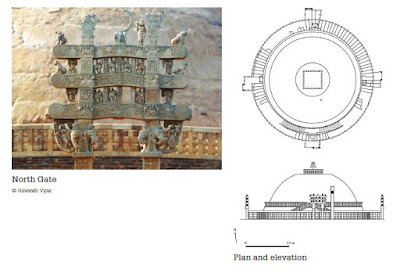
Great Stupa at Sanchi
Madhya Pradesh, India. Buddhist; Maurya, late Sunga Dynasty. c. 300 bce–100 ce. Stone masonry, sandstone on dome.
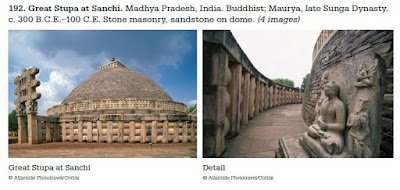
2
New cards
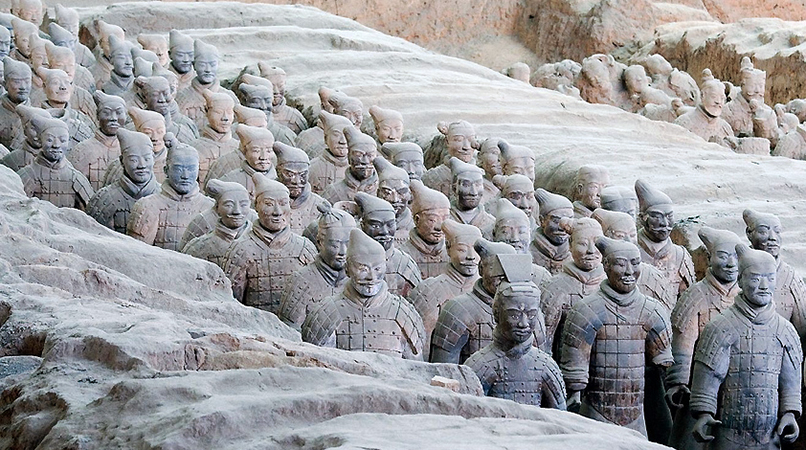
Terra cotta warriors from mausoleum of the first Qin emperor of China
Qin Dynasty. c. 221–209 bce. Painted terra cotta.
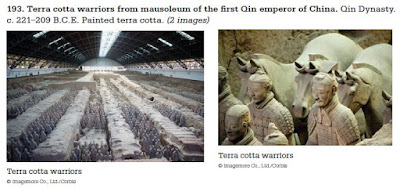
3
New cards
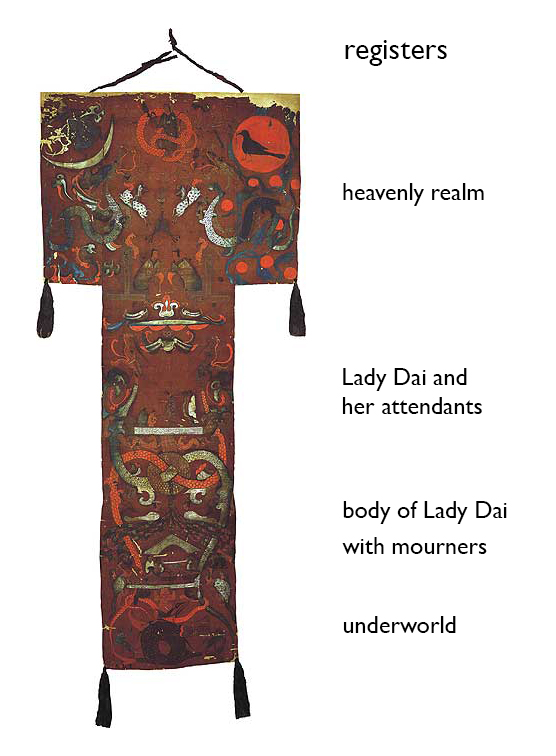
Funeral banner of Lady Dai (Xin Zhui)
Han Dynasty, China. c. 180 bce. Painted silk.
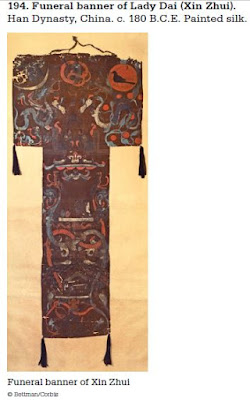
4
New cards
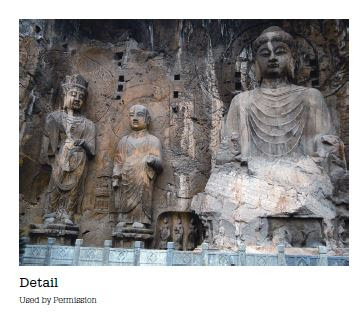
Longmen caves
Luoyang, China. Tang Dynasty. 493–1127 ce. Limestone.
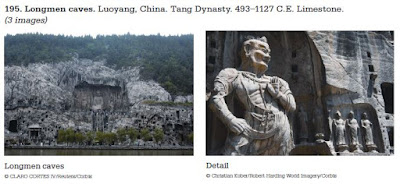
5
New cards
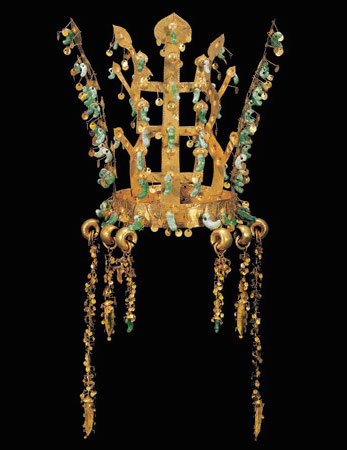
Gold and jade crown
Three Kingdoms period, Silla Kingdom, Korea. Fifth to sixth century ce. Metalwork.
6
New cards
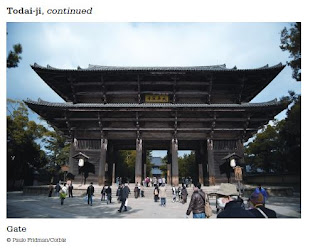
Todai-ji
Nara, Japan. Various artists, including sculptors Unkei and Keikei, as well as the Kei School. 743 ce; rebuilt c. 1700 ce. Bronze and wood (sculpture); wood with ceramic-tile roofing (architecture).
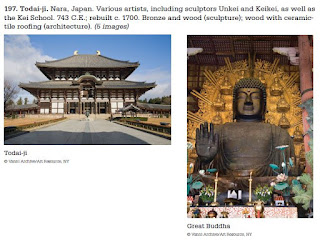
7
New cards
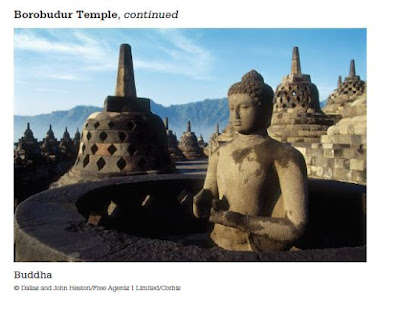
Borobudur Temple
Central Java, Indonesia. Sailendra Dynasty. c. 750–842 ce. Volcanic-stone masonry.
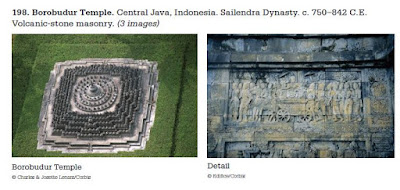
8
New cards
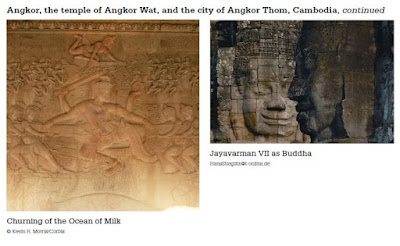
Angkor, the temple of Angkor Wat, and the city of Angkor Thom, Cambodia
Hindu, Angkor Dynasty. c. 800–1400 ce. Stone masonry, sandstone.
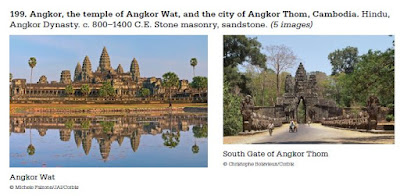
9
New cards
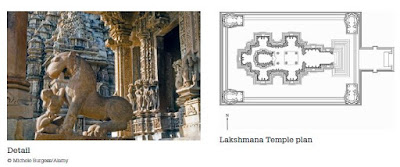
Lakshmana Temple
Khajuraho, India. Hindu, Chandella Dynasty. c. 930–950 ce. Sandstone.
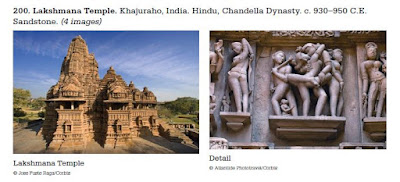
10
New cards
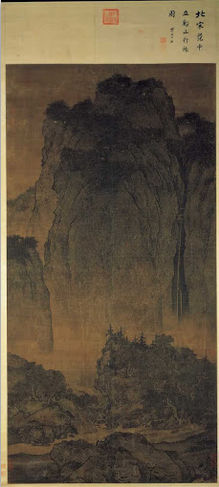
Travelers among Mountains and Streams
Fan Kuan. c. 1000 ce. Ink and colors on silk.
11
New cards
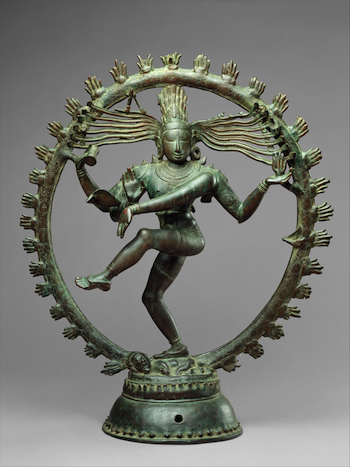
Shiva as Lord of Dance (Nataraja)
Hindu; India (Tamil Nadu), Chola Dynasty. c. 11th century ce. Cast bronze.
12
New cards

Night Attack on the Sanjô Palace
Kamakura period, Japan. c. 1250–1300 ce. Handscroll (ink and color on paper).
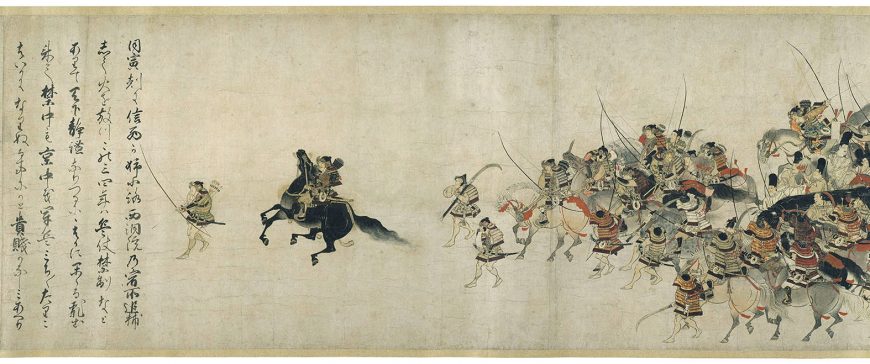
13
New cards
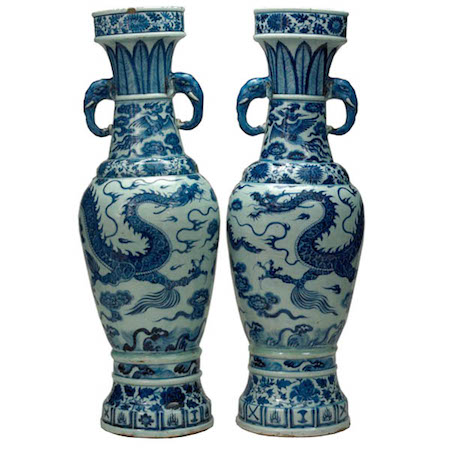
The David Vases
Yuan Dynasty, China. 1351 ce. White porcelain with cobalt-blue underglaze.
14
New cards
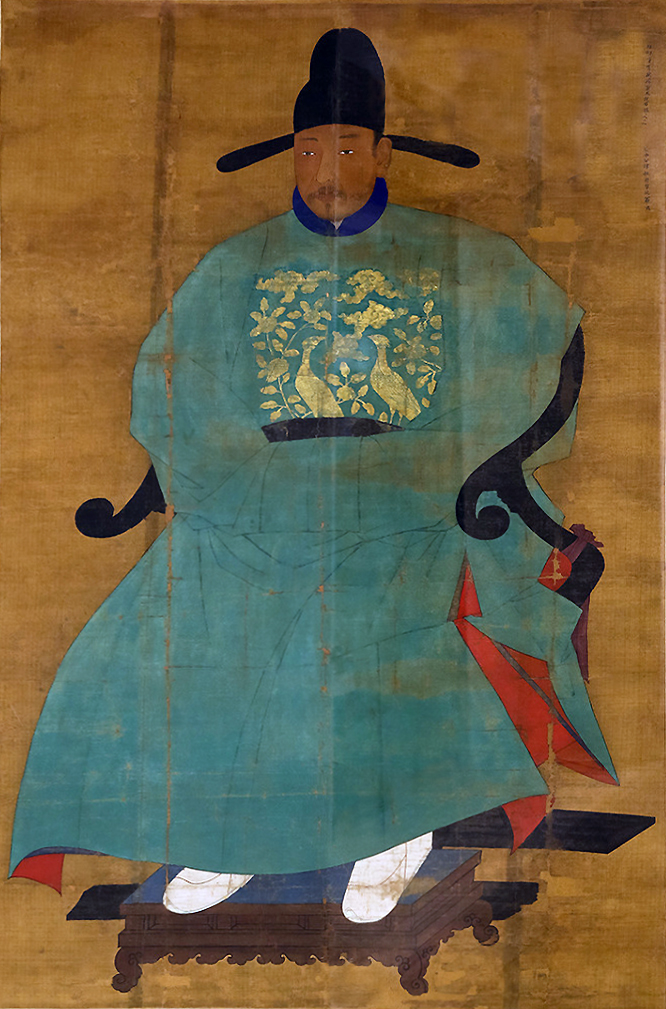
Portrait of Sin Sukju (1417–1475)
Imperial Bureau of Painting. c. 15th century ce. Hanging scroll (ink and color on silk).
15
New cards
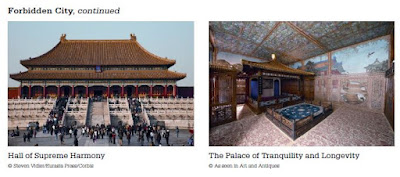
Forbidden City
Beijing, China. Ming Dynasty. 15th century ce and later. Stone masonry, marble, brick, wood, and ceramic tile.
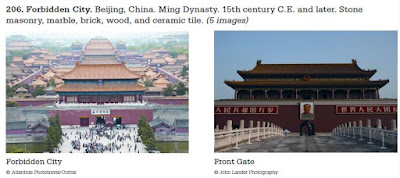
16
New cards
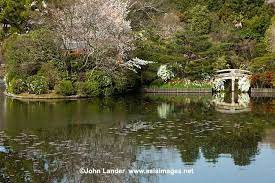
Ryoan-ji
Kyoto, Japan. Muromachi period, Japan. c. 1480 ce; current design most likely dates to the 18th century ce. Rock garden.
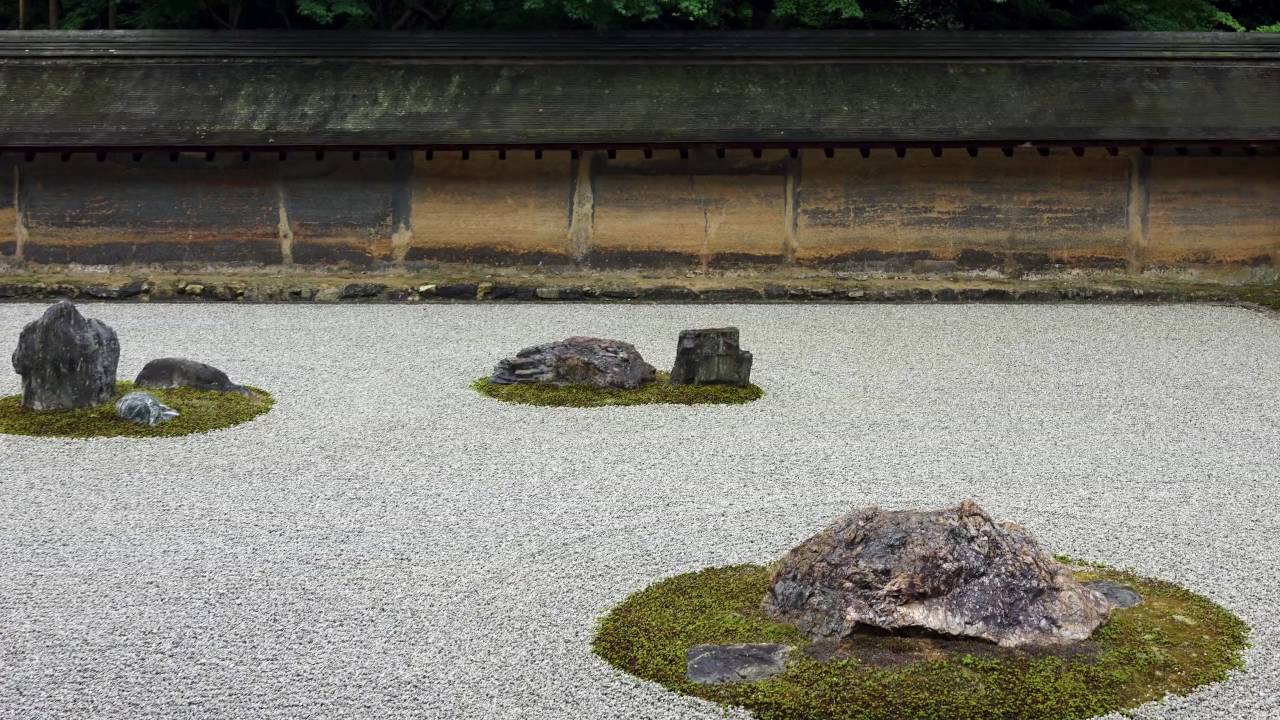
17
New cards
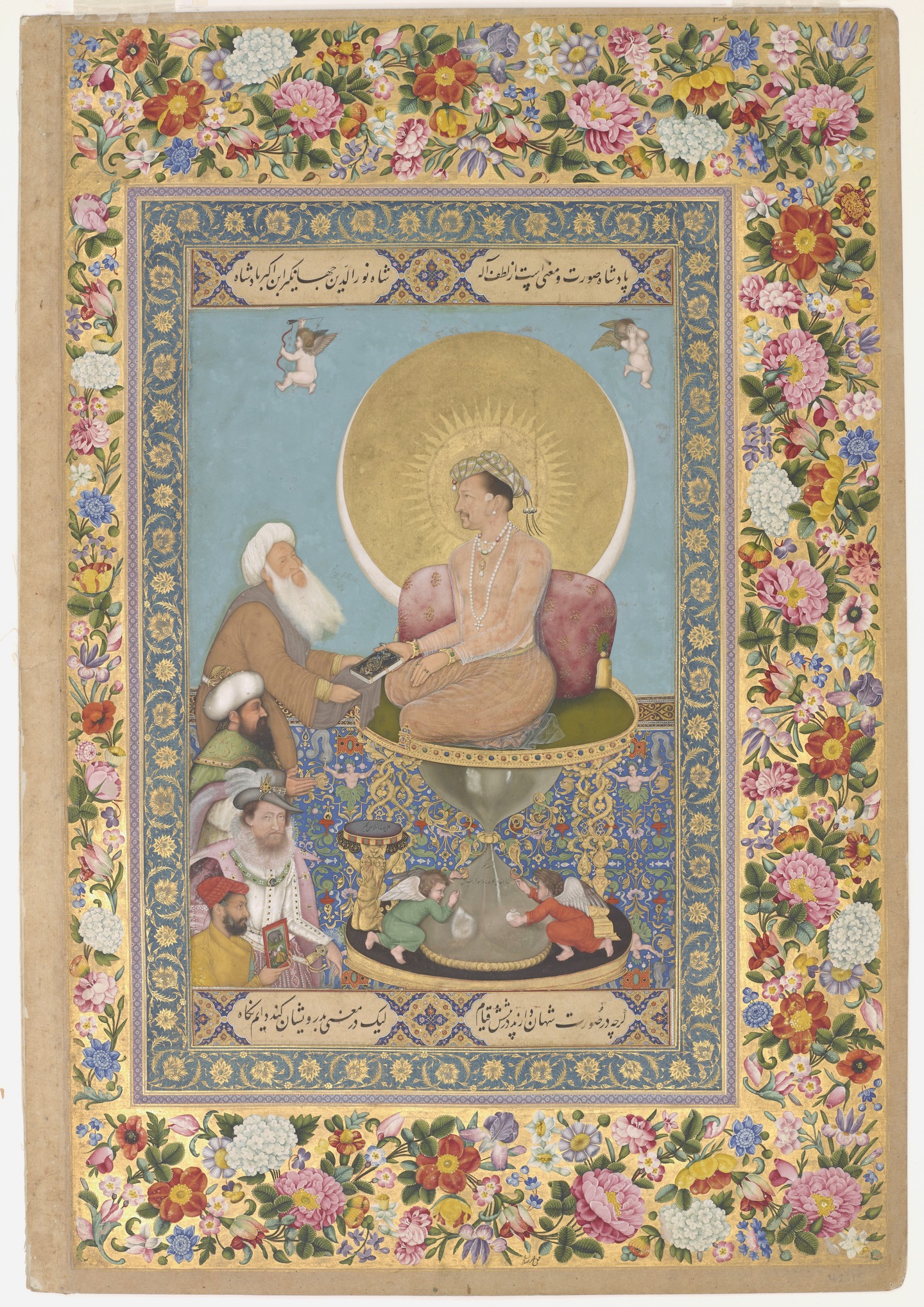
Jahangir Preferring a Sufi Shaikh to Kings
Bichitr. c. 1620 ce. Watercolor, gold, and ink on paper.
18
New cards
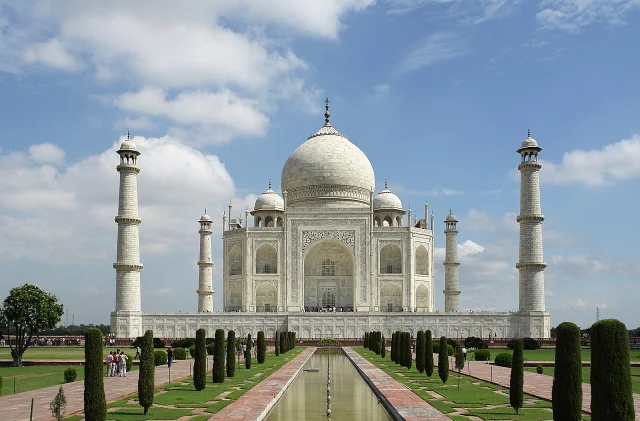
Taj Mahal
Agra, Uttar Pradesh, India. Masons, marble workers, mosaicists, and decorators working under the supervision of Ustad Ahmad Lahori, architect of the emperor. 1632–1653 ce. Stone masonry and marble with inlay of precious and semiprecious stones; gardens.
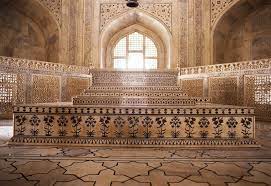
19
New cards
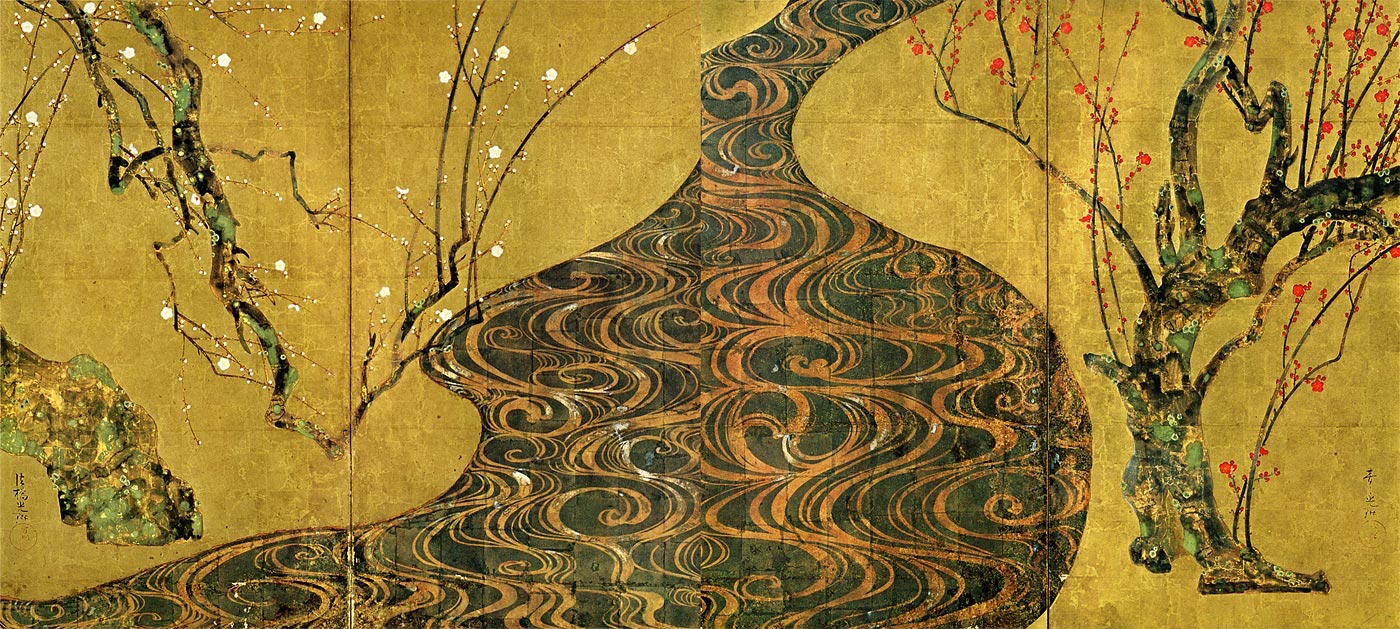
White and Red Plum Blossoms
Ogata Korin. c. 1710–1716 ce. Ink, watercolor, and gold leaf on paper.
20
New cards
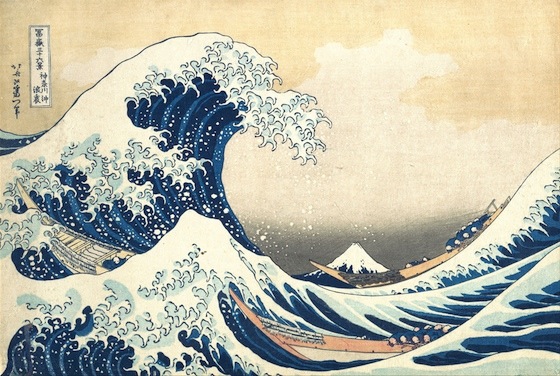
Under the Wave off Kanagawa (Kanagawa oki nami ura), also known as the Great Wave, from the series Thirty-six Views of Mount Fuji
Katsushika Hokusai. 1830–1833 ce. Polychrome woodblock print; ink and color on paper.
21
New cards
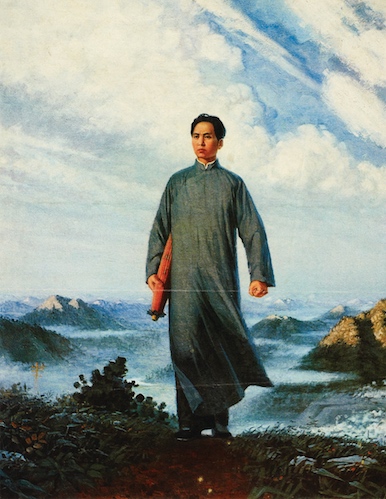
Chairman Mao en Route to Anyuan
Artist unknown; based on an oil painting by Liu Chunhua. c. 1969 ce. Color lithograph.